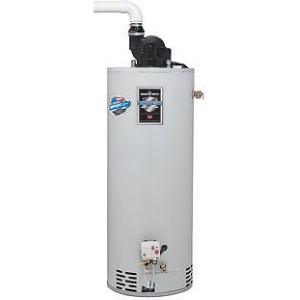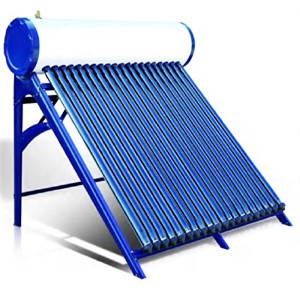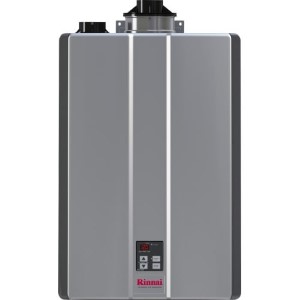- Home
- Types
Discover Different Water Heater Types for Your Home
Explore essential water heater types in our comprehensive review. Dive into the world of residential potable water heating systems, uncovering the key features, advantages, and disadvantages of popular options like gas, electric, solar, RV, tank, and tankless units.
This article aims to help homeowners become familiar with different types of water heaters, providing essential insights into various systems and technologies used in water heating. It covers an array of options, including tankless, tank-type, hybrid, condensing, and tankless coil heaters, highlighting different fuel sources and major manufacturers.
Whether purchasing a new unit or replacing an old water heater, this comprehensive review equips you with the necessary information. The accompanying infographic visually represents these important details.
By choosing the right water heater type for your home, you can ensure it not only meets your hot water needs but also operates efficiently. This can lead to significant savings on energy bills and water consumption, making it an essential decision for cost-effective and environmentally-friendly home management.
Water heater types: Understanding different technologies
- Tank-type water heaters
- Tankless type
- Hybrid water heaters
- Tankless coil type
- Indirect type
- Condensing water heaters
Storage tank-type water heaters
 Bradford White
Bradford WhiteTank-type water heaters, commonly known as standard or conventional types, are the most popular choice in the US and Canada. In Europe, they are typically referred to as cylinders.
These heaters utilize an insulated metal tank to store hot water, ensuring it is readily available for use.
Tank sizes vary, ranging from smaller capacities like 2 gallons to over 100 gallons. The 40- and 50-gallon sizes are particularly popular. Models with smaller tanks are known as point-of-use (POU), while larger ones are referred to as whole-house water heaters.
The main advantages of tank-type heaters include their lower price, well-established technology, powerful burners or heating elements, and the ability to handle low water flow, thus reducing the occurrence of the 'cold-water sandwich' effect.
However, there are significant drawbacks to consider. These include standby heat loss, as water is continuously heated even when not in use, large physical sizes, and the inability to repair them once they develop leaks.
Tank-type water heaters typically come with warranties ranging from 6 to 12 years, and their average life expectancy is around 10 to 12 years, although some models may last beyond 15 years.
In North America, three major manufacturers dominate the market for home water heaters: AO Smith, Rheem, and Bradford White. These companies also have subsidiaries such as American, State, Reliance, Whirlpool, GE, Kenmore, Ruud, and others.
Pros
|
Cons
|
Tankless type
 Takagi tankless water heater
Takagi tankless water heaterTankless as one of the most popular water heater types, operate by heating water on demand, providing hot water only when needed, such as when the hot water tap is turned on. These systems eliminate standby heat losses since they do not require a storage tank, offering an endless supply of hot water as long as there is demand.
While tankless heaters ensure you never run out of hot water, they do have limitations on flow rate, and the heating elements or gas burners can consume a significant amount of fuel. These units are typically compact and designed for wall-mounted installation. Gas tankless models can be installed both indoors and outdoors, with indoor units often featuring sealed combustion designs that allow for installation anywhere within the home.
Gas tankless models are generally more efficient than tank-type heaters but come with a higher initial cost. They are particularly suitable for larger homes with multiple bathrooms or households with high hot water demand.
Electric tankless such as the Tempra from Stiebel Eltron or Hubbell marine heaters, are even smaller in size.
In North America, the most popular tankless gas water heater brands include Rinnai, Noritz, Bosch, and Takagi. In Europe, German and Italian brands like Vaillant, Junkers, Riello, Ariston, Baxi, Ferroli and others, are widely used.
Pros
|
Cons
|
Hybrids
 American hybrid water heater
American hybrid water heaterHybrid home water heaters are units that incorporate two technologies, such as electric heating with heat pumps, or a combination of tank and tankless technology.
These hybrids offer significant advantages in terms of high energy efficiency and performance. However, it's important to note that they typically come with higher initial costs and installation expenses.
Hybrid water heaters are particularly well-suited for warm climates but may not be as effective in colder regions. Additionally, these units can provide both heating and cooling functions.
Pros
|
Cons
|
Tankless coil
 Tankless coil (photo:energy.gov)
Tankless coil (photo:energy.gov)The tankless coil water heater does not require a separate storage tank, as it heats water directly within the heat exchanger and boiler used for home heating.
One notable advantage of the tankless coil system is its ability to provide hot water while the home is being heated, leading to optimal efficiency, especially during colder periods such as winter.
However, the efficiency of the tankless coil significantly drops during warmer days when there is no demand for home heating.
Pros
|
Cons
|
Indirect type
 Indirect water heater (photo:energy.gov)
Indirect water heater (photo:energy.gov)As the name implies, indirect water heaters heat water indirectly. The water is heated within the boiler and then circulated through a heat exchanger.
This heat exchanger is situated within a separate, insulated storage tank, where it transfers heat to the surrounding water. Typically, these tanks are made of stainless steel, ensuring durability and efficient heating of both space and water.
Pros
|
Cons
|
Condensing type
 Polaris condensing water heater
Polaris condensing water heaterThe condensing technology enables both tankless and tank-type water heaters to capture hot exhaust gases that would normally be expelled through flue vents. This captured heat is then utilized for preheating water. In this section, you can explore the advanced features and specifications of the best condensing models.
Pros
|
Cons
|
Combination systems
Combination systems are specifically designed to provide both water and space heating functionalities. In Europe, these systems are commonly referred to as combi boilers, with popular brands including Vaillant, Junkers, Ferolli, and others.
Pros
|
Cons
|
Home water heater types by fuel source
Gas-powered water heaters
 Gas water heater
Gas water heaterGas water heaters can operate using either natural gas or liquid petroleum (LP or propane). Natural gas is often more convenient, while propane gas requires propane tanks and regular delivery, making it comparatively more expensive.
Gas heating is generally more affordable and considered environmentally friendly, whereas electricity tends to be more expensive and can contribute to pollution if generated from nuclear or coal-powered plants.
Gas-powered home water heaters are capable of heating water faster, and they typically offer a higher first-hour delivery compared to electric models. This category includes various water heater types and models such as atmospheric, direct-vent, power-vent, and power-direct vent units. The popularity of new condensing water heaters is on the rise due to their advanced features and highly efficient heating capabilities.
Despite their advantages, gas water heaters also have drawbacks, including higher costs, safety concerns, requirements for proper venting systems, installation constraints, and increased complexity.
Smaller propane models are mainly used for heating water during camping trips or for use in RVs.
Pros
|
Cons
|
Electric type
 Electric water heater
Electric water heaterElectric water heaters generally have simpler construction compared to gas units. Although they typically have higher Energy Factor (EF) ratings, their first-hour rating is lower, and they are generally less cost-effective to operate.
Among electric models, the most popular models belong to the category of point-of-use heaters. These units are primarily designed to provide hot water to a single fixture.
Related: Lowboy water heaters
Pros
|
Cons
|
Solar type
 Solar water heater
Solar water heaterHome water heaters that utilize solar heat can be initially expensive, but in comparison to other types, they offer lower operating costs and utilize free fuel from the sun. Solar water heating systems (SWHS) are known for their reliability and durability, and when installed correctly, they can provide ample hot water, particularly in southern regions.
In colder areas, they can serve as a backup or supplementary system to an existing setup. SWH systems are available in active or passive configurations, and if you have the necessary skills, you can even construct your own system using a guide found here.
Pros
|
Cons
|
Oil-fired water heaters
Oil-fired water heaters are similar to traditional electric or gas units, but they incorporate an oil-powered burner for heating purposes.
These heaters are specifically designed to heat large quantities of water rapidly, boasting higher efficiency and recovery rates. The water can be heated either directly from the burner or indirectly through hot water from the boiler.
For a detailed comparison of gas, electric, and oil water heaters, you can check out the comparison provided here.
Pros
|
Cons
|
Exploring lesser-known water heater varieties
Drain water heat recovery systems
 Drain water heat recovery system
Drain water heat recovery systemAre you tired of wasting energy and spending excessive amounts on your water heating bills? If so, it's worth considering the purchase and installation of a drain water heat-recovery device. These devices can help you save energy and reduce your water heating expenses.
Boosters
 Rheem booster
Rheem boosterBoost your water heating performance and achieve significant energy savings with a water heater booster. This innovative device enhances the delivery speed of hot water while also optimizing energy efficiency, ultimately resulting in cost savings and reduced water consumption.
Pool heaters
 Jandy pool heater
Jandy pool heaterIf you own an above- or in-ground swimming pool, it's worth considering the purchase of a pool heater. While the ideal water temperature varies from person to person, installing a pool heater can significantly enhance comfort and convenience. Explore the available options for pool heaters and discover how they can make a difference in your swimming experience. Check them out here.
Selecting tips
Now that you have selected the appropriate water heater type, consider the following factors when purchasing one:
Size: Most tank-type water heaters are chosen based on their capacity, which is measured in gallons. Popular sizes for families of four or mid-size homes range from 50 to 80 gallons. Ensure that you choose the right unit size for your household's needs. An undersized heater may not provide enough hot water, while an oversized one can lead to energy waste. Consult with a professional if you're unsure about sizing.
First-hour rating (FHR): On storage tanks, the FHR indicates how much hot water the unit can deliver in one hour, while on tankless heaters, it represents the flow rate in gallons per minute (GPM). This rating determines how many fixtures the heater can supply during peak usage times.
Energy efficiency: The energy factor (EF) is the best indicator of a water heater's efficiency. Higher efficiency translates to less wasted energy. Look for the blue Energy Star logo, which signifies high efficiency. Standard tank-type models usually have 1-2 inches of foam insulation, while high-efficiency models feature thicker insulation, heat traps, hot surface or electronic ignition, power or direct vent options.
UEF (Uniform Energy Factor): UEF is the new standard for measuring water heater efficiency, replacing the EF method. The UEF is determined by the Department of Energy (DOE). Models with higher UEF ratings are more efficient and offer improved savings.
Energy Guide label: This label, found on every model, provides information about the FHR, capacity, annual energy use, and the annual cost to operate the unit.
Features: Consider additional features such as a commercial-grade anode, heat traps, PV or DV models, anti-scale devices, brass drain valves, eco-friendly and low NOx burners, advanced electronics with LCD display, Wi-Fi capability, voice-activation systems, condensing technology, and others.
Installation location: Determine where you plan to install the water heater. Different types of heaters have specific installation requirements. For example, tankless heaters require less space, while tank-type heaters need more room. Solar heaters necessitate suitable roof space or mounting areas, and electric heaters require the appropriate wiring.
Environmental impact: If you're environmentally conscious, you might want to explore eco-friendly options such as solar or heat pump water heaters. These can reduce your carbon footprint and energy consumption.
Price and warranty: Price and warranty are essential factors to consider when selecting a water heater, as they can have a significant impact on your decision-making process. Longer warranties often indicate the manufacturer's confidence in their product's durability. Understanding the warranty terms and coverage can help you make an informed decision.
Other things to consider
As discussed earlier, there is a wide range of water heater types available that can cater to various home types and sizes, depending on the availability of natural gas or electricity and whether you reside in southern or northern regions.
If your current water heater is ten years old or older, it's worth considering the purchase of a new, more efficient unit with advanced safety features, particularly if you live in an area with hard water (high mineral content).
Installing a water softener can also be beneficial in such cases.
Keep in mind that approximately 20% of a home's total energy usage is dedicated to water heating alone. Therefore, making a wise choice in selecting a water heater can lead to significant cost reductions over its lifespan.
It is important not to rush when selecting the best water heater for your home, as the cost of purchasing, installation, and operation can vary greatly among different models and manufacturers. Take the time to research and compare options to ensure you make an informed decision.
Related
- Home
- Types

